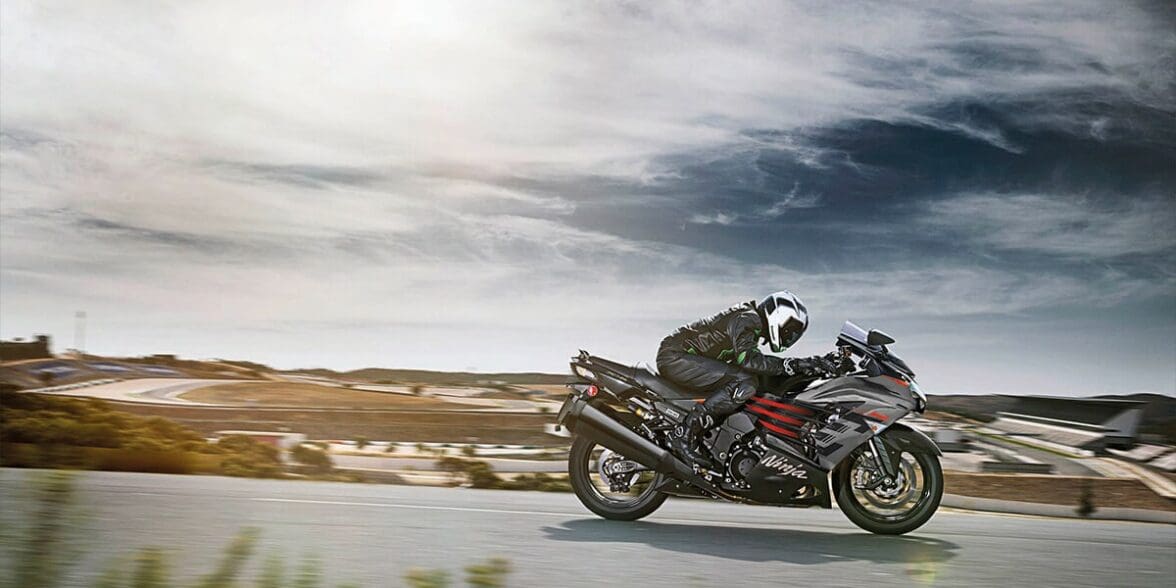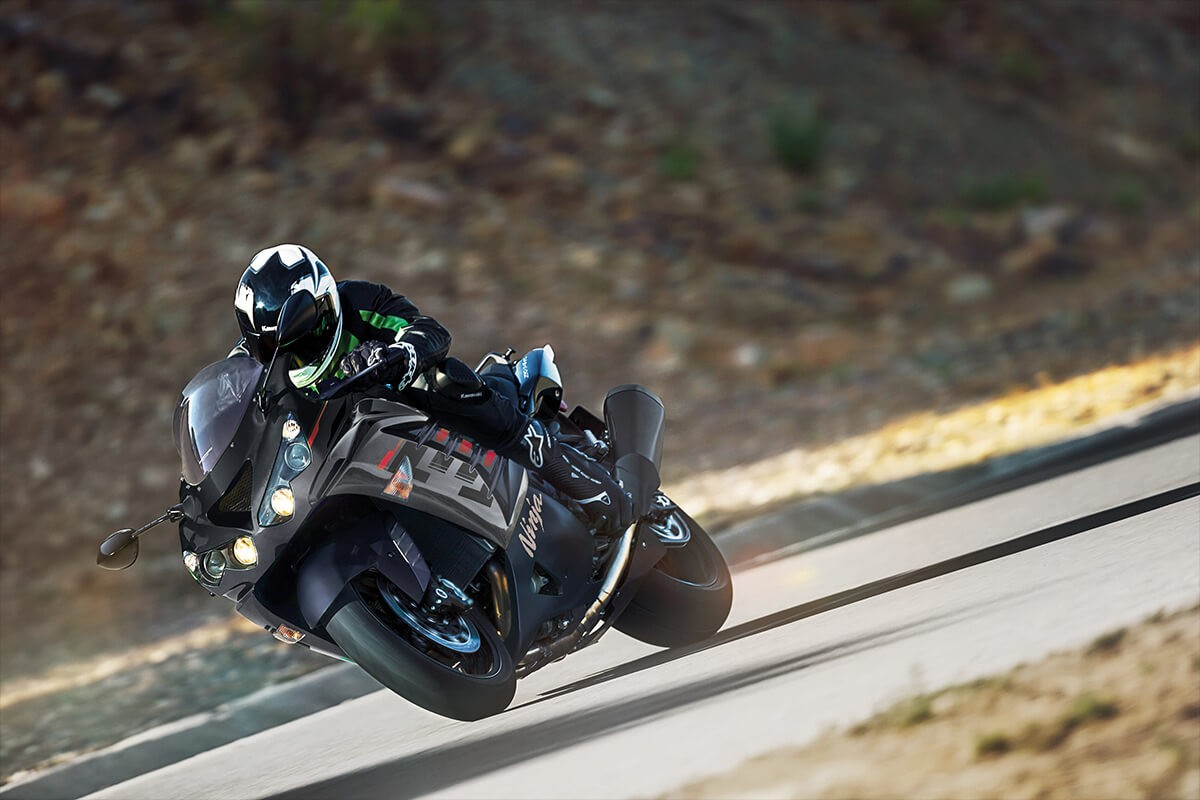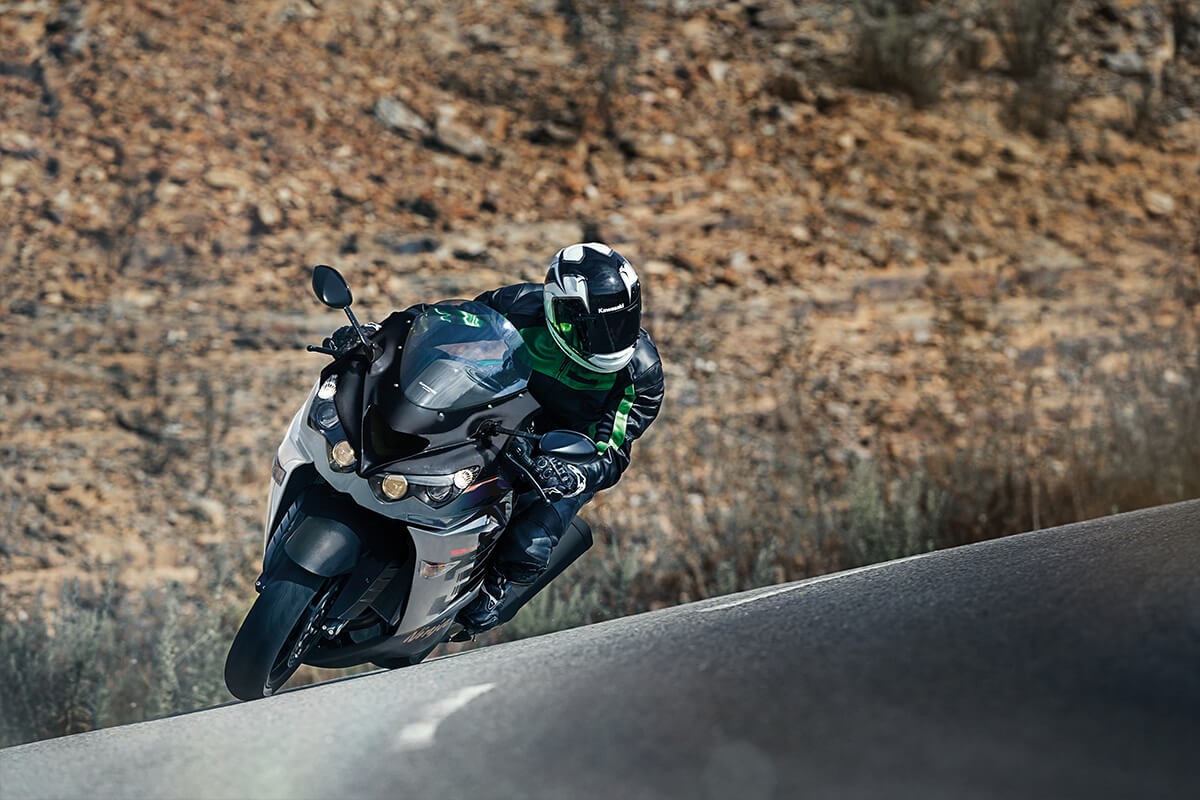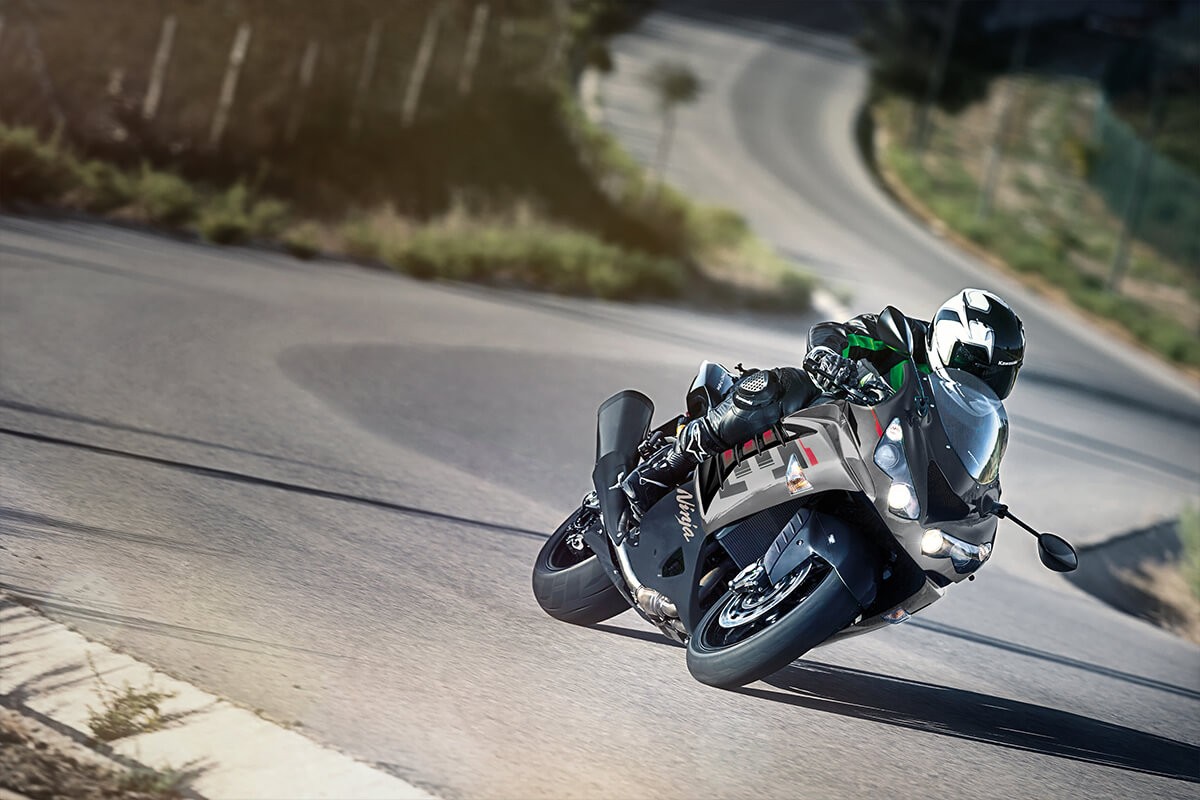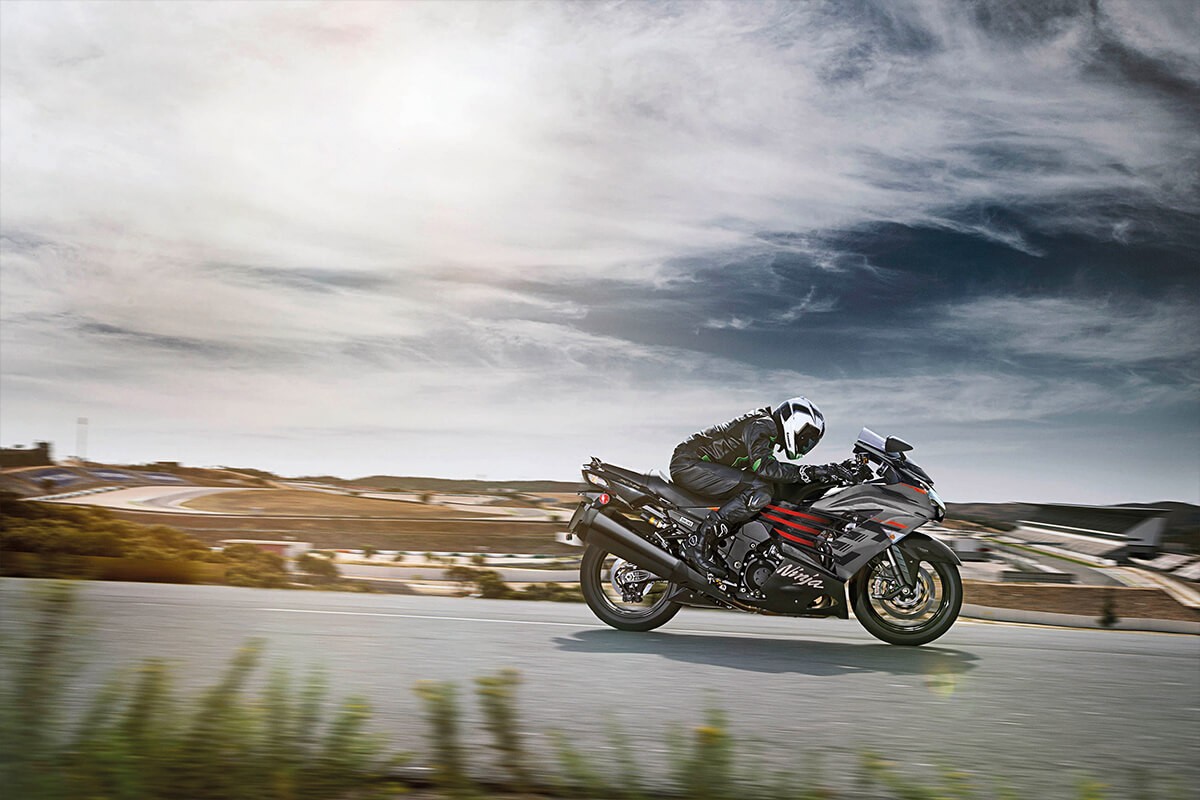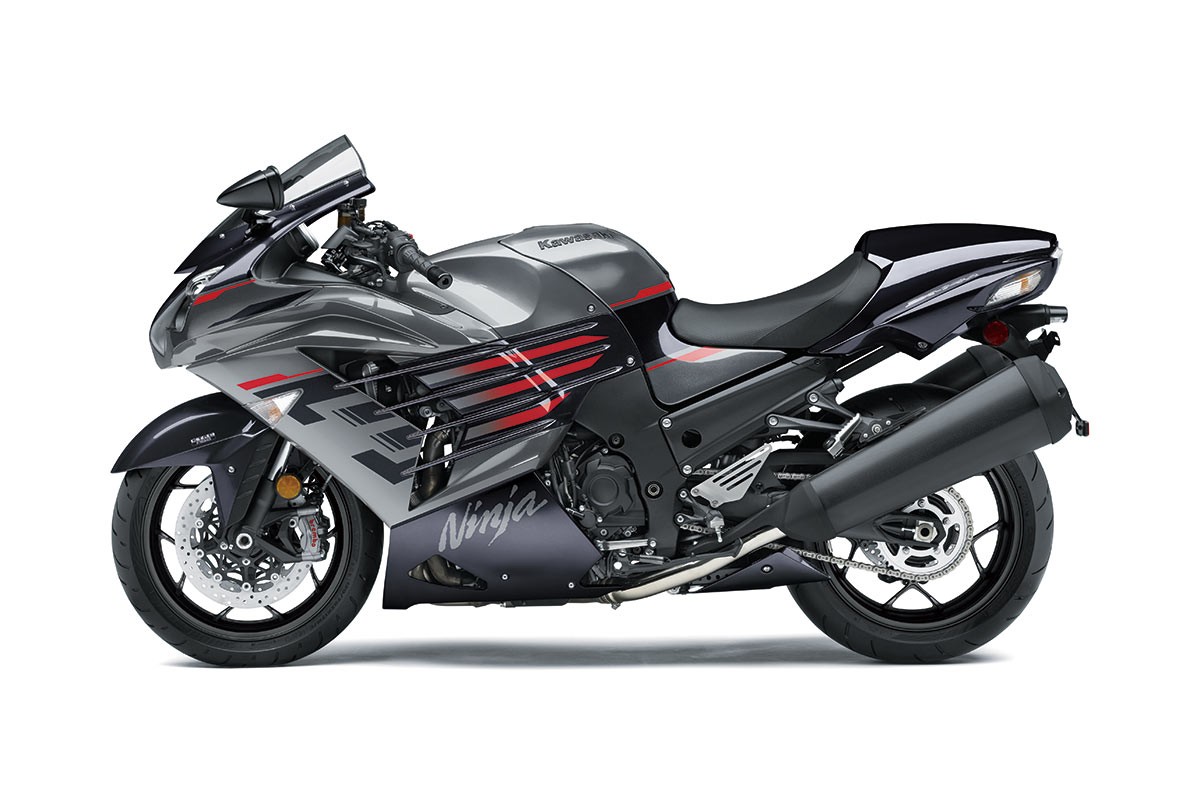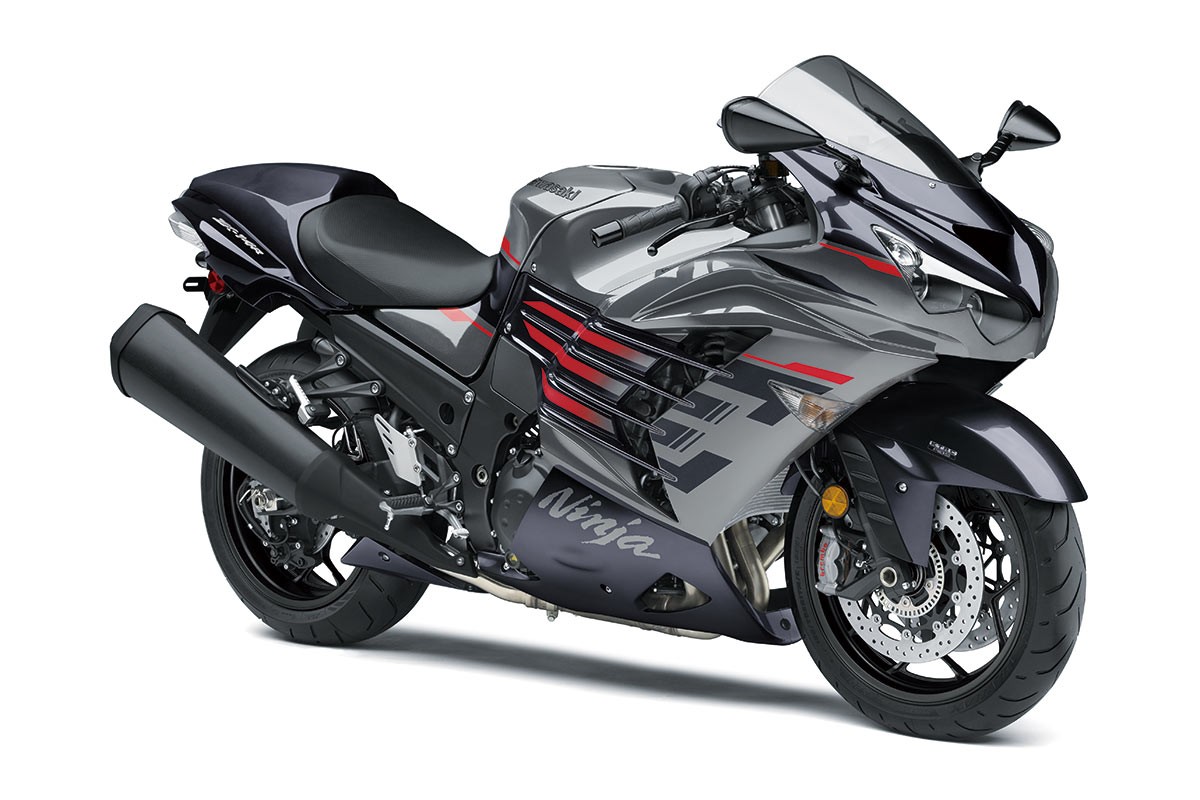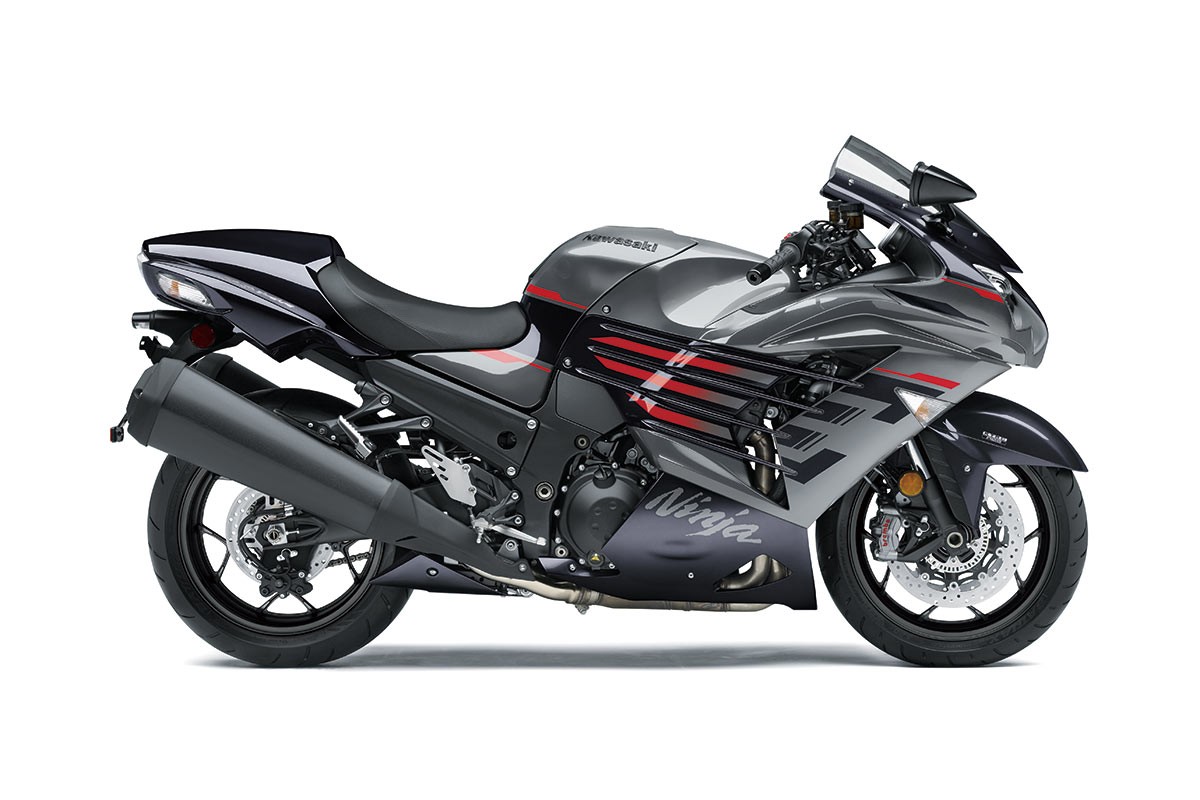The 2022 Kawasaki Ninja ZX-14R: A Real Dragstrip Dominator
Contents
It seems like Kawasaki is always trying to outdo themselves—not to mention the other big Japanese motorcycle brands—and with the Ninja ZX-14R, there’s a compelling case to be made that they’ve succeeded. First introduced in 2006 (when it set a world record for fastest production motorcycle), this aggressive supersport has since undergone a few changes—but Kawasaki has kept these small in order to preserve the bike’s famous and well-deserved reputation.
The 2022 version of the bike hasn’t changed much, apart from some color differences—it’s now available in Pearl Storm Gray/Metallic Diablo Black, with aggressive red fairing highlights. It still sports its legendary 1441cc in-line four-cylinder engine, which produces a beefy 207.9 hp and 113.2 lb-ft of torque.
Other major features on the bike include Kawasaki Traction Control, multiple power modes, and Brembo 4-piston M50 monobloc calipers. And don’t forget the monocoque chassis, which helps the bike achieve nimble handling so you can cope with all that power more effectively.
This year’s Ninja ZX-14R definitely belongs in the 2022 Kawasaki motorcycle lineup, and is more than enough to compete with rivals like the Suzuki Hayabusa or the BMW R 1250 RS. It starts at $15,599 USD / $18,299 CAD.
On this page: we’ve curated specs, features, news, photos/videos, etc. so you can read up on the new 2022 Kawasaki Ninja ZX-14R in one place.
Model Overview
General Info
- Price: $15,599 USD / $18,299 CAD
- Key Features:
- KTC (Kawasaki Traction Control)
- Multiple power modes
- Monocoque chassis
- Brembo 4-piston M50 monobloc calipers
Main Specs
- Engine: 1441cc in-line four-cylinder
- Power: 207.9 hp
- Torque: 113.2 lb-ft
- Curb Weight: 593 lbs (269 kg)
- Seat Height: 31.5in (800mm)
Competitors
2022 Kawasaki Ninja ZX-14R Specifications
ENGINE |
||
| Engine | 1441cc, 4-stroke, In-Line Four, DOHC, 16-valve, liquid-cooled | |
| Power | 207.9 hp | |
| Bore x Stroke | 84.0 x 65.0mm | |
| Compression Ratio |
12.3:1
|
|
| Fuel System | DFI® w/44mm Mikuni throttle bodies (4) | |
| Starter | Electric | |
| Electronic Rider Aids | Kawasaki Traction Control (KTRC), Power Mode, ABS | |
DRIVETRAIN |
||
| Clutch | ||
| Transmission | 6-speed, Manual, Return Shift | |
| Final Drive | Sealed chain | |
CHASSIS |
||
| Suspension Front | 43mm inverted cartridge fork with adjustable preload, 18-way compression and 15-way rebound damping adjustment/4.6 in | |
| Suspension Rear | Bottom-link Uni-Trak® and gas-charged shock with adjustable preload, stepless rebound and compression damping adjustments, adjustable ride height/4.9 in | |
| Brakes Front | Dual floating 310mm Brembo® discs with dual radial-mounted Brembo® 4-piston M50 monobloc calipers and ABS | |
| Brakes Rear |
Single 250mm disc with twin-piston caliper and ABS
|
|
| Tires Front | 120/70ZR17 | |
| Tires Rear | 190/50ZR17 | |
| Fuel Tank Capacity | 5.8 gal | |
| Color |
Pearl Storm Gray / Metallic Diablo Black
|
|
ELECTRICAL |
||
| Ignition | TCBI, battery powered & electronic advance | |
| Spark Plugs | ||
| Headlight | LED | |
| Tail Light | LED | |
DIMENSIONS |
||
| Overall Length | 85.4 in | |
| Overall Width | 30.3 in | |
| Overall Height | 46.1 in | |
| Wheelbase | 58.3 in | |
| Ground Clearance | 4.9 in | |
| Seat Height | 31.5 in | |
| Curb Weight | 593.1 lb* | |
WARRANTY |
||
| Warranty | 12 Months | |
| Kawasaki Protection Plus | 12, 24, or 36 months | |
2022 Kawasaki Ninja ZX-14R Features
Dual Throttle Valves
On models with dual throttle valves, there are two throttle valves per cylinder: in addition to the main valves, which are physically linked to the throttle grip and controlled by the rider, a second set of valves, opened and closed by the ECU, precisely regulates intake airflow to ensure a natural, linear response. With the air passing through the throttle bodies becoming smoother, combustion efficiency is improved and power is increased.
Economical Riding Indicator
While effective vehicle speed and engine speed may vary by model, paying attention to conditions that cause the “ECO” mark to appear can help riders improve their fuel efficiency – a handy way to increase cruising range. Further, keeping fuel consumption low also helps minimize negative impact on the environment.
KTRC (Kawasaki Traction Control)
Less intrusive modes maintain optimum traction during cornering. Designed with sport riding in mind, they facilitate acceleration out of corners by maximizing forward drive from the rear wheel. And because Kawasaki’s sophisticated software bases its dynamic analysis on the chassis’ orientation relative to the track surface (rather than relative to a horizontal plane), it is able to take into account corner camber, gradient, etc., and adapt accordingly.
In the more intrusive modes (and for some models, in any mode), when excessive wheel spin is detected, engine output is reduced to allow grip to be regained, effectively enabling riders to negotiate both short, slippery patches (train tracks or manhole covers) and extended stretches of bad roads (wet pavement, cobblestone, gravel) with confidence.
Power Modes
ABS (Anti-lock Brake System)
2022 Kawasaki Ninja ZX-14R Photos
2022 Kawasaki Ninja ZX-14R Videos
2022 Kawasaki Ninja ZX-14R ABS
2022 Kawasaki Ninja ZX14R
Links
Kawasaki Official Websites


